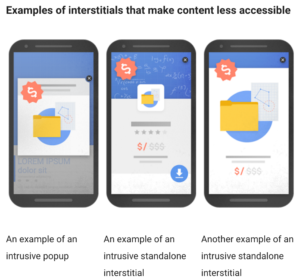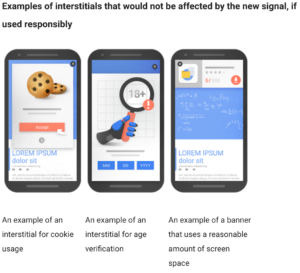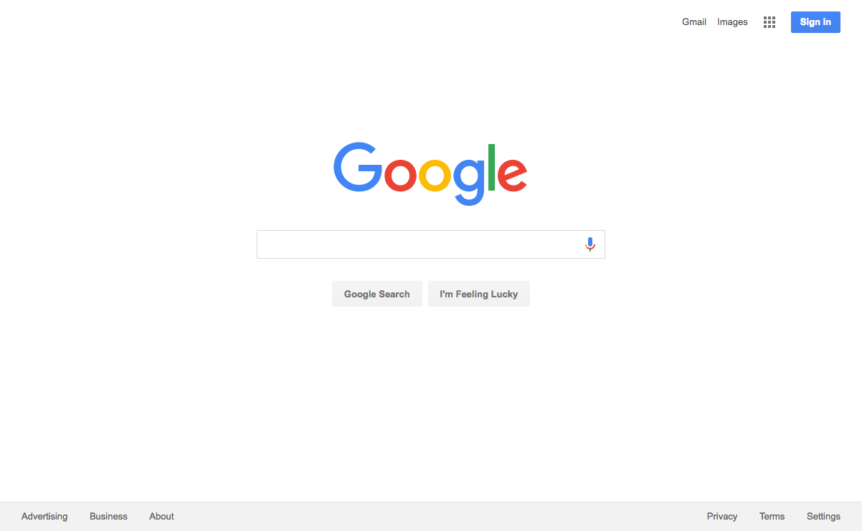In a move that will have consequences almost as far reaching as the 2011 ‘Panda’ update, Google has announced a crackdown on websites that have poor user experiences on mobile web. This change began about two years ago when Google introduced the ‘Mobile Friendly’ label to help surfers easily find sites that would be a more pleasant and useful experience on mobile devices. Since that time almost 85% of all pages returned on a mobile browser now contain the best practices outlined by Google at that time. In an effort to continue improving that experience, they will now be removing that label to de-clutter the search results and instead make mobile optimization a requirement for being displayed in search results.
Starting January 2017, Google’s update will begin suppressing any sites that do not provide a good mobile experience for users on small-screen devices. This will include things like text spacing and sizing, tap targets being appropriately spaced, and eradicating large popups. The number one item that the Google update will be initially targeting are what they call ‘Intrusive Interstitials’, or ‘large and obnoxious popups that block immediate viewing of the site content’ in layman’s terms.
Beginning January, any sites that use large or full-site popups such as those used on many modern sites to collect email addresses or offer special lead-magnet deals, will be penalized if they appear on mobile. The example that Google gives is that if a popup interferes with viewing site content on mobile and is not required by law, it will be deemed as inappropriate and the site will be penalized. An example of an appropriate use of popups will be a small popup banner that covers less than 30% of the screen area, or a full screen age verification popup as required on most age-restricted product websites. See the examples below for further instances of popups that will and will not be allowed:

Credit: Google

Credit: Google
Google does mention that site content relevance will still be one of the strongest signals for ranking, so even some poor mobile experiences will be forgiven if the content is the most relevant to the user’s search query. Even if you do have the best content on the ‘net, I wouldn’t risk your rankings just for a couple additional email addresses. Best to ensure compliance early and be ready for the rollout in early 2017. In an effort to help site administrators, Google offers two tools to help determine how your site will stack up on mobile rankings here and here.

